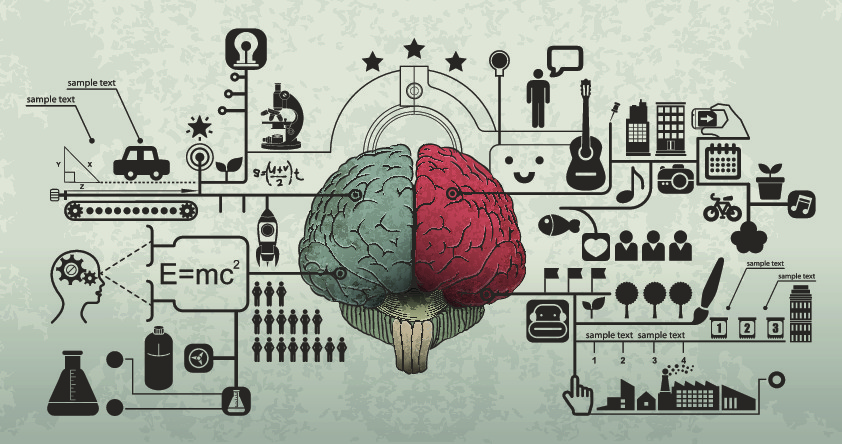
Psychology is the scientific study of human behavior and mental processes. It’s existed since the ancient civilizations of Egypt and Greece, mostly as a branch of philosophy, but broke out as an independent branch of scientific study in the 1870s. The effects of psychological studies are more relevant and respected than any period in the past, and new discoveries and applications for psychology are always being uncovered by top researchers.
For example, consider the initial reaction to World War I veterans by the psychological and medical professionals of the early 20th Century. An initial theory written by physician Charles Myers in 1915 posited soldiers were experiencing “shell shock” due to exposure to repeated concussive blasts, resulting in brain damage. When this theory was disproven, the prevailing wisdom at the time was the people suffering from “shell shock” were simply weak or cowardly, despite the fact that some estimates suggest nearly 20 percent of surviving WWI veterans developed the condition. There is near unanimous agreement among modern psychologists that shell shock was in fact what we commonly refer to today as post-traumatic stress disorder (PTSD).1
Many of the primary modern applications for psychology revolve around protecting people from emotional and physical harm while providing them with the necessary mental bandwidth to handle the psychological perils many people face daily. Issues like relationships, workplace stress and financial difficulties all can be affected by psychological symptoms that require diagnosing and managing, which is where modern psychology comes into play and why it’s so important.
Despite the popular stereotype of the private practice therapist popularized by the media, psychology professionals actually have access to a wide variety of industries and fields, from education and criminal justice to marketing and politics.
How Does Psychology Help People?
Essentially, psychology helps people in large part because it can explain why people act the way they do. With this kind of professional insight, a psychologist can help people improve their decision making, stress management and behavior based on understanding past behavior to better predict future behavior. All of this can help people have a more successful career, better relationships, more self-confidence and overall better communication.
Sub-Disciplines of Psychology
The study of psychologically is so widespread today, different sub-disciplines or branches of psychology are widely recognized and frequently leveraged in an array of industries. Some psychology sub-disciplines include:
- Family – Family psychology, sometimes known as family therapy, focuses on the interpersonal systems found with the family.
- Sports – Sports psychology focuses on how psychology factors can affect an athlete’s performance.
- Business – Business psychology focuses on the effectiveness of a workplace or organization through the study of people and overall behavior in the workplace.
- Media – Media psychology focuses on the complex relationship between media and its effect on human behavior.
- Forensic – Forensic psychology is the practice of studying individuals who are involved in the legal system, such as expert witnesses or those under criminal investigation.
Modern Psychology Careers
A career in psychology could take multiple trajectories. For example, a modern psychology career could be completely researched-based and non-public facing, or it could be as a family counselor who works with people of all ages each day. Here are some of the common careers people enjoy after they’ve earned their bachelors of science in psychology.
Professors – A career as a psychology professor can be rewarding for two reasons: First, professors are often at the forefront of new discoveries made in the field by attending conferences and keeping up on new research. Second, psychology professors often cite the joy of shaping young, curious minds as one of the most rewarding aspects of their work.
Working at Hospitals – Licensed psychologists often work in hospitals or in clinics where they can use their knowledge to help people who are experiencing psychological trauma of some kind. It could be in a children’s hospital, a rehab clinic or any number of health care establishments.
Government Agencies – All sorts of government agencies employ psychologists. Some of the top government psychology jobs include correctional counselors, military psychologists, criminal profilers and veteran counselors.
Working in Schools – Psychologists commonly work in schools as well, where their expertise can be used to help students who are dealing with any sort of emotional, behavioral or learning difficulties that may be impairing their education. Psychology jobs in schools could be in primary, secondary or even on college campuses.
Business – Large businesses frequently consult psychologists to better understand things like their clientele’s practices and habits. Elsewhere, businesses may tap into industrial-organization psychology to increase productivity by improving workplace organization and structure while also refining training and employee screening processes.
Are You Interested in a Career in Psychology?
If so, consider applying for the Bachelor of Science in Psychology program offered at the University of the District of Columbia. At UDC, the psychology program allows students to explore a wide array of disciplines and sub-fields to ensure graduates are prepared for entry-level employment or to continue their education to a masters or doctoral degree. Begin your journey toward making a difference in people’s lives by calling (202) 274-5787 or by visiting us online and applying today!
1http://theconversation.com/from-shell-shock-to-ptsd-a-century-of-invisible-war-trauma-74911

